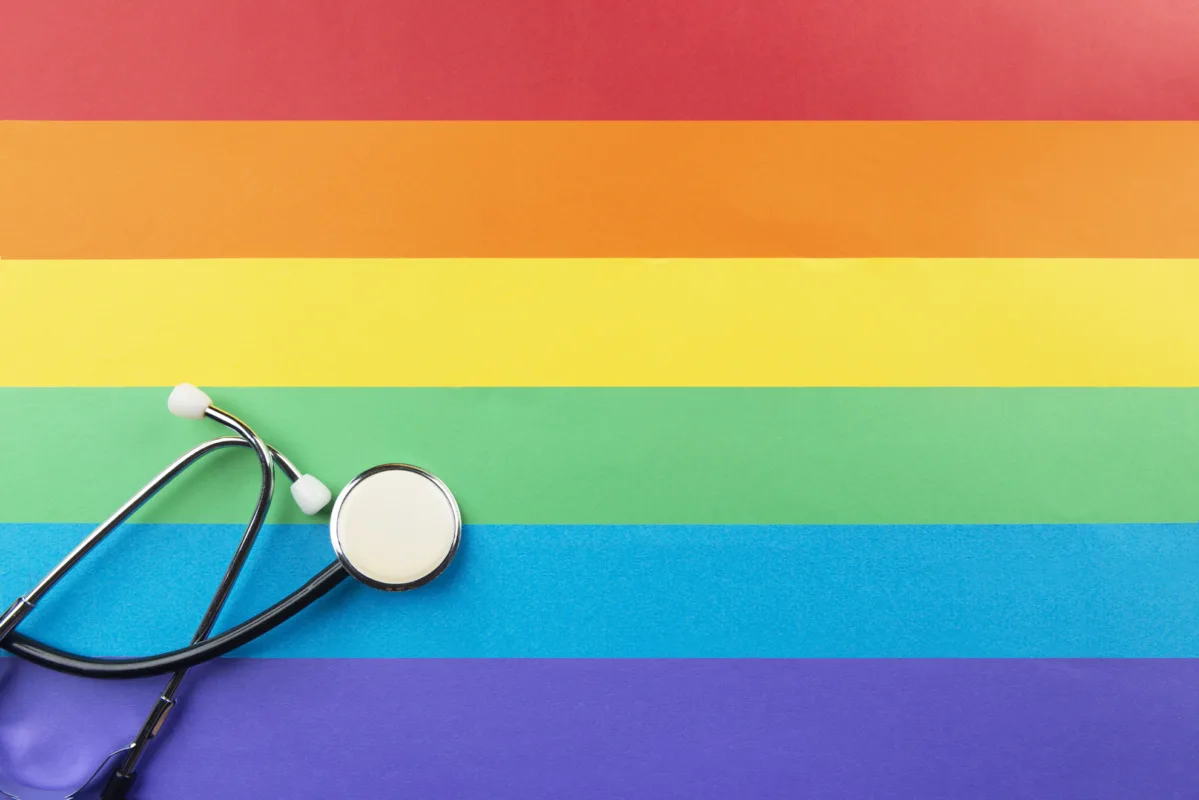Examining a critical issue affecting the well-being of LGBTQIA+ adults in the U.S., this blog post draws from the KFF Survey of Racism, Discrimination, and Health. Understanding the healthcare experiences of LGBTQIA+ adults starts with knowing the facts. By learning the truth of their situation, we can work towards building stronger, more supportive communities. The KFF survey provides first-hand insights into the experiences of LGBTQIA+ adults in the healthcare system. Below are the key statistics from this survey, highlighting how our healthcare system is falling short for this diverse community.
Discrimination in Daily Life
- Higher Rates: 65% of LGBT adults report facing discrimination, compared to 40% of non-LGBT adults.
- Common Experiences: These include poor service in public places, harassment, and being treated as if they are not smart or as if others are afraid of them.
- Demographic Disparities: Younger LGBT adults (18-29) and LGBT women face higher discrimination rates. Lower-income LGBT adults also experience more frequent discrimination.
Negative Health Care Experiences
- Unfair Treatment: LGBT adults are twice as likely as non-LGBT adults to report unfair treatment by health care providers.
- Specific Issues: These include assumptions without asking, blaming them for health problems, ignoring their questions, and refusing needed medication.
- Consequences: Negative experiences lead to worse health outcomes, reluctance to seek care, and switching providers.
Mental Health and Well-Being
- Severe Mental Health Crises: LGBT adults are more likely to report severe mental health issues, such as anxiety, depression, and crises leading to hospitalization or homelessness.
- Impact of Discrimination: Those who face frequent discrimination are more likely to feel anxious, lonely, and depressed.
- Support Networks: Strong local support networks help mitigate these mental health challenges.
Access to Mental Health Services
- Barriers: Nearly half of LGBT adults needed mental health services in the past three years but didn’t get them, primarily due to affordability and accessibility issues.
- Homelessness: LGBT adults are twice as likely to have experienced homelessness, with even higher rates among Black and lower-income LGBT adults.
Building a Resilient Community
Understanding these challenges is essential for fostering resilient communities. Here’s how we can help:
- Promote Inclusivity: Support policies and practices that ensure fair treatment for all, regardless of sexual orientation or gender identity.
- Enhance Access to Care: Advocate for affordable and accessible mental health services.
- Strengthen Support Networks: Encourage community programs that build strong local support systems for LGBT individuals.
- Combat Stigma: Work to reduce stigma and discrimination through education and awareness campaigns.
By addressing these issues, we can create a more supportive environment where everyone has the opportunity to thrive. Stay resilient, stay informed, and support each other!
For more tips and support, follow our Resilient Communities Social Media Accounts.
For more information on Health Care Challenges for LGBTQIA+ Adults or more information on the findings from the KFF Survey of Racism, Discrimination, and Health visit:

